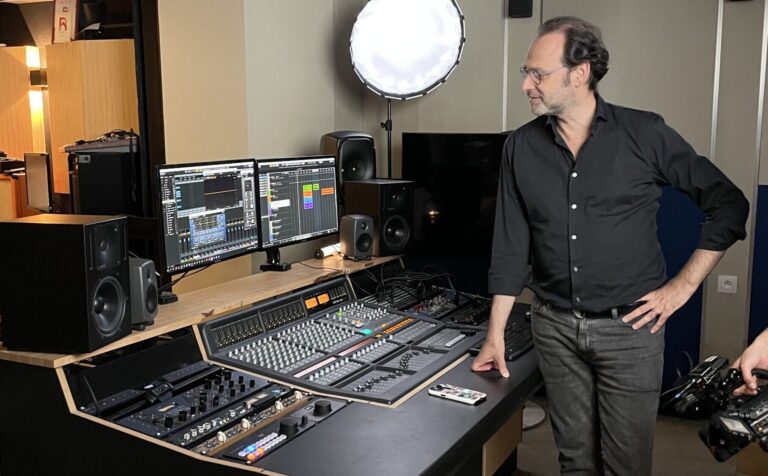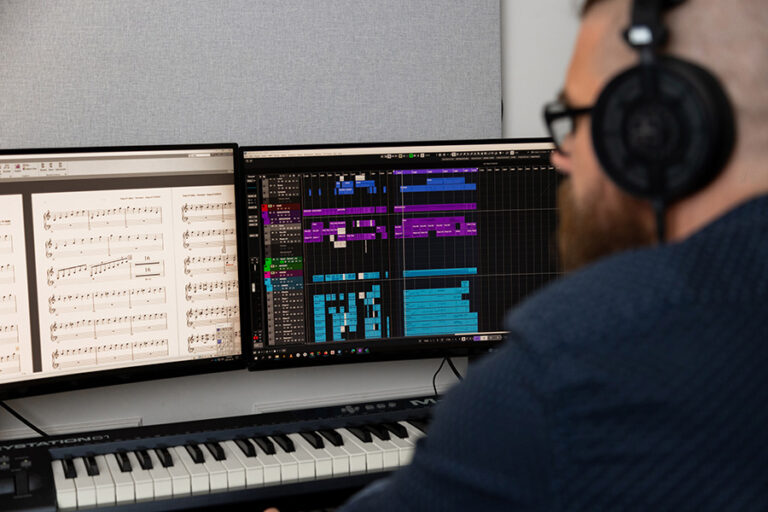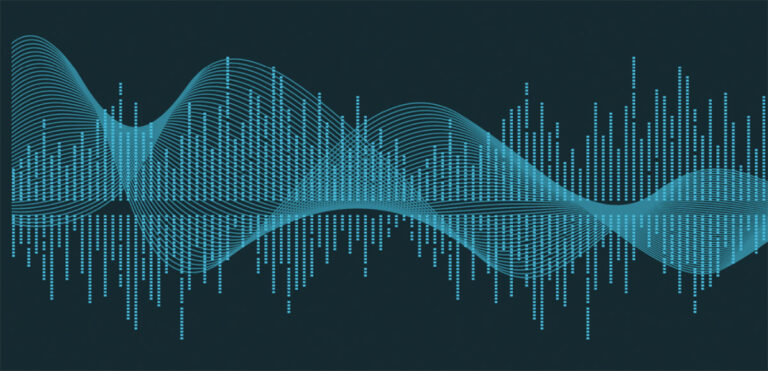By Colleen Fahey
Howard Gardner, in his Theory of Multiple Intelligences, proposes a specific type of intelligence related to music. At Sixième Son, our creative team glows with musical intelligence influenced by nature and nurtured through immersion.
At our workplace, many of Gardner’s suggestions occur in the course of our creative team’s day-to-day work. Working in a shared space, the team composes music in various styles, they listen to each other’s compositions and share music trends. They also seek or invent musical patterns in order to best serve the needs of brands.
Here’s a selection of activities from the article that are necessary habits for our talented teammates. To hone your own musical intelligence, consider adopting one or two from this list or from the full article.
Participate in concerts and musicals.
- Concerts and musical events inspire the creatives as well as the strategy and account teams. They relish hearing emerging music, intriguing combinations of styles and new ways of playing traditional instruments. As a music lover, listening with an ear for trends and innovations can add another layer of enjoyment to the excitement of an event.
Listen to background music while studying, working, or doing other activities.
- Music in the environment is inevitable when you work in a studio. And music playing in the background can help you concentrate and get into a flow state, too. It can also positively affect your mood, especially if you have a hand in choosing it. If you’re someone who gets too distracted by music, feel free to ignore this bullet!
Listen to different styles of music than you are used to
- With the help of our music strategists, the composers seek music from distant lands far and near. Each new project sets up a new reason for curiosity. This activity can help you stay at the forefront of the different musical styles and the unexpected twists fellow creative people put on them.
Play an instrument
- Noodling on an instrument leads to creative ideas, different instruments lead to different patterns. Playing a musical instrument develops both musical intelligence and other mental abilities, like predictive powers, motor skills and, yes, pattern recognition.
.
Our team can’t help listening to and creating music, because they work together in a studio setting and constantly share music to ask for feedback or spur ideas. Many of us around the world, like much of today’s workforce, don’t go into the office. But by listening to what the creative team designs, we’ve also developed our ability to hear music’s patterns and to connect them to our branding instincts.




